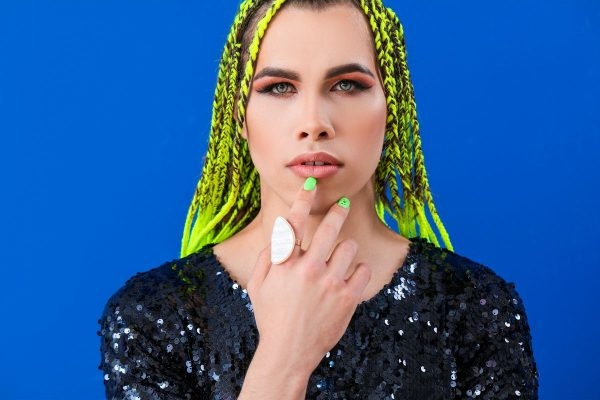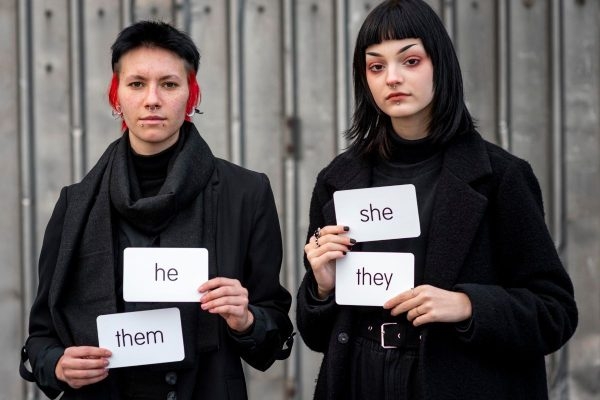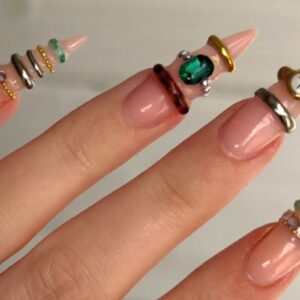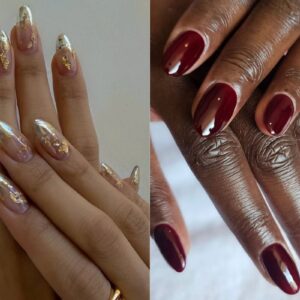
How to perfect pronouns in your beauty business & beyond
By Guest Writer | 15 November 2023 | Expert Advice, Feature

Salon owner, industry advisor & founder of Be Trans Aware inclusivity awareness education, Sam Marshall, serves up advice on pronoun use…

“How is they?” was a question my good friend asked about a non-binary partner.
Now, I know you’ll be reading that thinking ‘Didn’t Sam check the grammar?’ but those words meant everything to me. They meant my friend was trying. She didn’t get it right; in fact, the grammar police would have locked her up and thrown away the key, but the effort score was top-notch.
If you are open to five minutes of education on the topic, and you are someone who is ready to embrace a new concept that will become one day normal, read on.
Pronouns
I’m sure you may have come across pronouns. Some of you may even be using them already, others might be seeing them on email footers and thinking ‘What are they there for, it’s blatantly obvious that Clare is female!’. Pronouns are part of the day-to-day language you use when referring to other people. Typical ones are she/her and he/him. As nail professionals, we constantly meet new people who may identify as cis-gender, non-binary (which can also be known as ‘Enby’) or trans.
Gender is a spectrum and with a minimum 1% of the population being trans, the chances are you have already met, treated or employed someone who might not identify with the gender they were assigned at birth.
When booking an appointment for a client over the phone, we ask their name and unknowingly assume their gender by either the name given, their tone of voice or even based on the treatment they book. If someone is trans, their voice may sound different to how they identify, and often does. But it is also worth noting that medical conditions can affect the tone of someone’s voice, and many cis women (those whose gender identity matches their gender assigned at birth) naturally have deeper voices.

Why should I use pronouns?
Using the wrong pronoun (also known as ‘misgendering’) is when you gender someone incorrectly, for example calling a trans woman ‘he’. This is very disrespectful as it makes them feel invalidated, dismissed, deeply uncomfortable and even more dysphoric.
So, what can we do? Let’s start with the easiest step you can make in your business; sharing and asking about pronouns. As someone with a name that could be any gender, I regularly used to get asked my gender on email by potential clients for waxing services, so I now include my pronouns (she/her) on my booking system bio and email signature.
They/them pronouns
Sometimes, but not always, people who identify as non-binary might use ‘they/them’ pronouns. This may be a hard thing to adapt to as we know this as a plural, but we use it all the time without even realising. For example, “My last client left their coat” or “I’m meeting a friend on Sunday with their partner.”
Interestingly, the ‘they/them’ pronoun has actually been used as a singular since the 14th century and historically, Shakespeare used it in his acclaimed work. Let’s face it, the English language is confusing, so learning this might take a bit of practice – but it is our duty to try.

What you can do
If you use a booking system that asks for a client’s gender but only gives the male or female option, what should a non-binary person select? I highly recommend removing gender completely, as to whom the hands and nails are attached shouldn’t matter.
Creating a custom box on your online booking system, or over the phone saying, ‘can I ask what pronouns you use please?’ is the easiest first step. Add your pronouns to your email footer, name badge, booking system, Zoom name and even business cards. Changes like these can all start to make pronouns part of our day-to-day language.
Using the correct pronouns means so much to a trans or non-binary person, as it shows that you respect their identity and acknowledge their humanity.
POINT TO NOTE: Preferred pronouns
If someone uses multiple pronouns, for example ‘she/them,’ they may have a preferred one, in which case asking for a preferred pronoun makes sense. However, I would suggest asking ‘What pronouns do you use?’ instead. We all have a choice to adapt to evolving language, and only by us making these changes will others feel more validated and understood.
Click here to book Sam’s Habia-endorsed trans awareness training.

Read the latest issue









